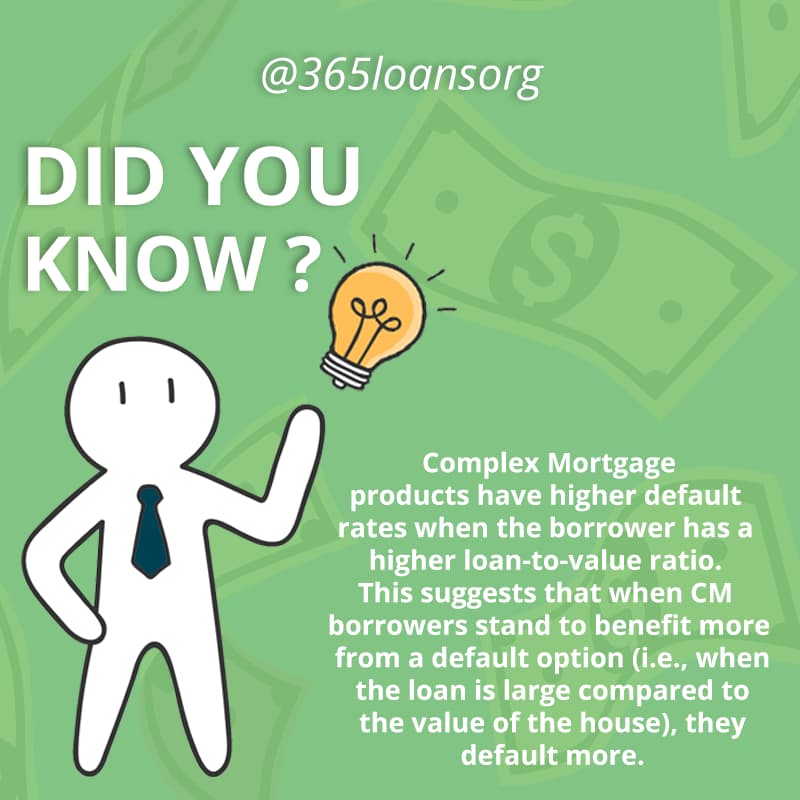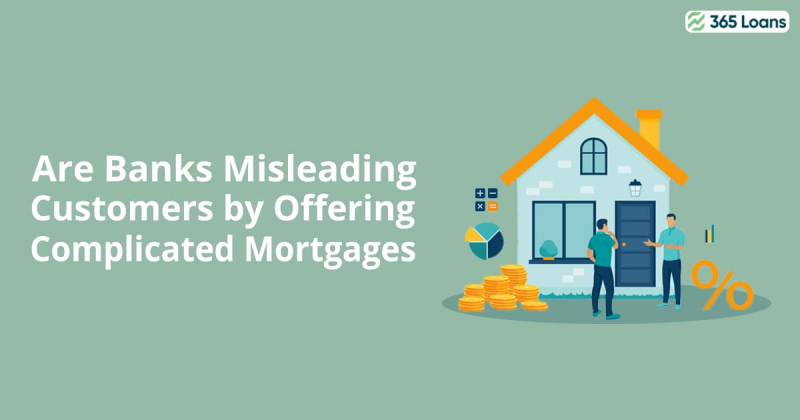Banks are frequently accused of profiting from confusingly complex products. At the same time, mortgages are arguably the most significant purchase a citizen makes. Pick the wrong bank product, and you could lose your home.
But is it really that banks are offering complex mortgages to mislead customers? Or does complexity benefit clients by making it possible to customize their mortgage to suit their unique needs?
Below, we will explore if the mythical evil assigned to the banking institutions when it comes to mortgage loans is, in fact, there for the exploitation of the everyday mortgage consumers.
The Changing Nature of Mortgages
Not so long ago, banks did, in fact, offer customers items they would never be able to pay back, which contributed to the financial disaster. In contrast to complexity, though, this might have been caused by low lending rules.
Wait, what? So, the banks are evil indeed?
In the 20th century, mortgage products were incredibly straightforward. There were only two loan parameters that borrowers had to decide on: the maturity and the interest rate (fixed or adjustable). In fact, the majority of mortgage products were straightforward, 30-year loans with fixed or adjustable interest rates, requiring monthly principal and interest payments from borrowers.
The 21st century saw a significant change in everything. Prior to the financial crisis of 2008–2009, mortgage products got more complex, and lenders started to offer products like interest-only loans and loans with negative amortization that allowed borrowers to put off loan payments for a number of years.
These Complex Mortgage (CM) products have received harsh criticism as one of the primary causes of the financial crisis in both the popular press and policy circles. Their ramifications for wellbeing, however, are not immediately apparent. There are three views that are not mutually exclusive:
- Customer Obfuscation: These sophisticated products may be used by lenders to take advantage of less financially savvy borrowers. According to this perspective, these borrowers take these items without completely comprehending their repercussions because they are unsure of what they are getting into.
- Consumption Smoothing: Financially strapped households might solve their cash flow issues with complex mortgages. With these products, borrowers who anticipate an increase in their income can pay larger mortgages and have higher welfare.
- Strategic Default: Borrowers may actually take advantage of the complexity rather than be fooled by it. They can leave the residence if home prices decline by keeping their mortgage debt high (by, for example, not paying off the principal). In the event of information and renegotiation frictions, such borrower strategic default could be expensive for the mortgage market.
So, these three points actually start altering the common perception of evil banks a bit. So, let us dive into the details of who and why is the actual consumer of the alleged predatory mortgages.
Why Do People Take Out Complex Mortgages?
Understanding who used these products and how they fared during the severe decrease in housing prices that followed the financial crisis is a crucial first step in finding the answer to this question.
To support the herein story, below are findings quoted from the lead article in Volume 22, Issue 6 of the Review of Finance: Complex Mortgages by Gene Amromin, Jennifer Huang, Clemens Sialm, and Edward Zhong.
Contrary to popular belief, sophisticated borrowers with high salaries and credit ratings took up interest-only and negative amortization mortgages in greater numbers than poor, naive borrowers. But what fundamental reasons led people to use these products?
The consumption smoothing and default option viewpoints are both found to be valid reasons. In fact, the research report closely examines the default-option view and finds that complex mortgage packages defaulted twice as frequently as traditional fixed-rate mortgages. This finding implies that CM borrowers default more regularly when they stand to gain more from the default choice, that is, when the loan represents a more significant proportion of the home’s worth.
Are Complex Mortgages Types of Predatory Lending?
Higher default rates are seen by many detractors as proof of decreased consumer welfare because lenders are providing households with predatory mortgages that they cannot afford to pay back. Instead, the findings above contend that some borrowers may have benefited from defaults. The loan could have been repaid, but they opted not to.
Does that mean that banks are there to give you the best terms? Certainly not. But it also does not mean that all lenders live to deceive.

Nevertheless, you should always be on the lookout for any signs of predatory lending and exercise good care before taking any loan, let alone a long-term mortgage.







